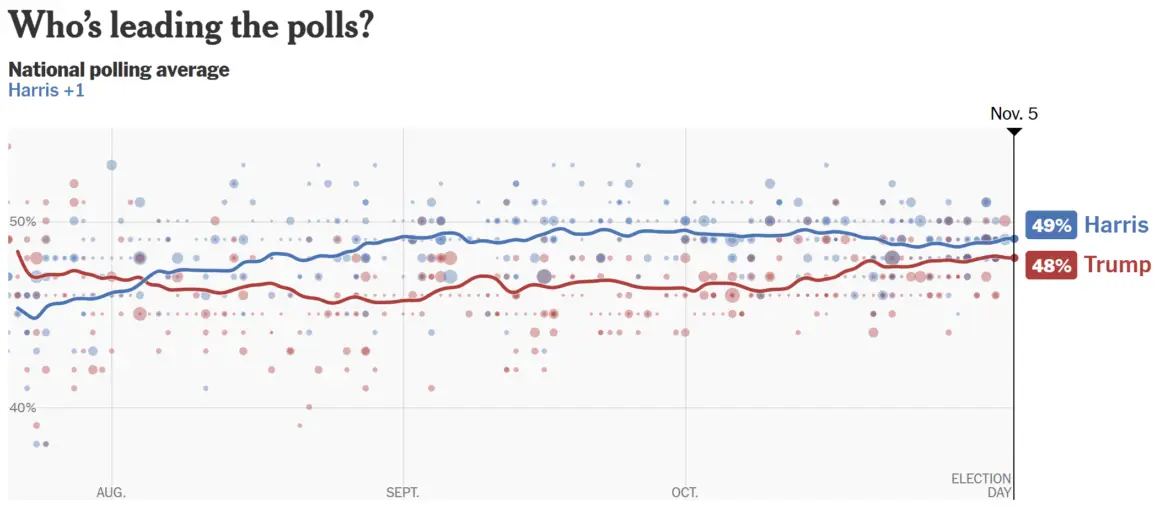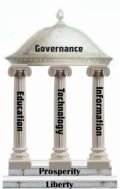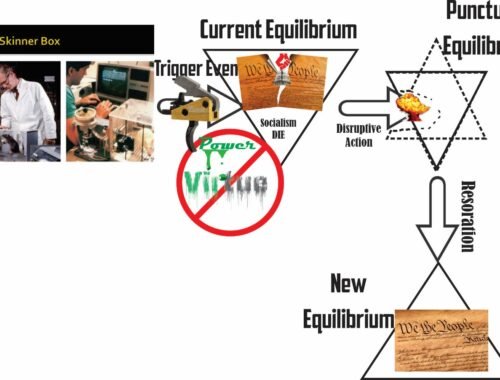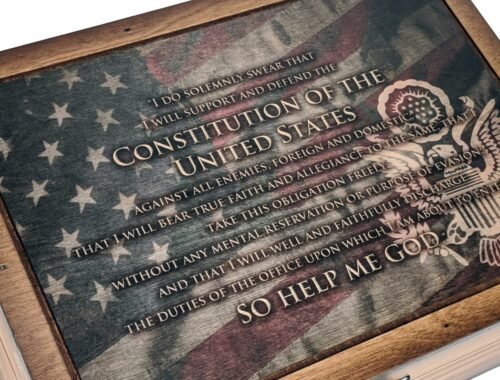
Surveys, Polls, Cognitive Bias and Election Results
(Source: https://www.nytimes.com/interactive/2024/us/elections/polls-president.html)
One common thread in the stories of the 2024 election is that Trump came from behind to win the election. But what if that is not the true story? What if the polling data was flawed? How can that be? Aren’t the polls conducted scientifically, and the data analyzed with state-of-the art statistical tools? Perhaps, but…
- Was the polling truly random or did the pollsters consciously or subconsciously pick samples that were skewed to deliver the results they wanted?
- How did the pollsters phrase their questions? Was there deliberate or hidden bias in the framing of the questions, so they influenced answers?
- Did people answer honestly, or did they fear giving their honest opinion? I suspect there may have been some fear factor involved, given the reports of people losing their jobs or worse, if they speak out against DEI issues.
- Did the pollsters use the right type of statistical tools to analyze the data? Many go straight for the familiar tools that are based on stochastic data. If the data is not stochastic, then pollsters need to use far more complex statistical tools. Using the wrong tools can provide misleading results.
What if the polls on both sides had one or more of these issues? Perhaps Trump was ahead all along and the polls were skewed either deliberately or through cognitive bias?
Then, the next question would be, was the skewing deliberate or not? Did the pollster have an agenda and seek to influence people’s decisions and votes through skewed polls?
I cannot definitively say one way or the other, but I strongly suspect that the polls were flawed, some deliberately, and some from cognitive biases. To the extent that media sources conducted the polls, those sources were biased to either, they may not be reliable. I suspect our media has become more of an editorial device than a factual news device—on both sides of the political divide.
So how do we fix this?
- Have pollsters disclose how they selected the sample population and the potential limits and conflicts the sampling technique can engender.
- Have the pollsters disclose the statistical tools they are using and any potential problems they could cause if they are not appropriate for the population sample.
- Independently test the populations and tools and disclose the results.
- Independently assess the potential bias of media and other polling organizations.
If a media or other polling organization does not want to disclose this information and let an independent organization review their work, then perhaps we need to ask why? Perhaps they will argue that complying will compromise trade secrets. But the independent organization could be bound to protect trade secrets and only report the results without compromising trade secrets.
If we want a free republic, we need to address this problem.





